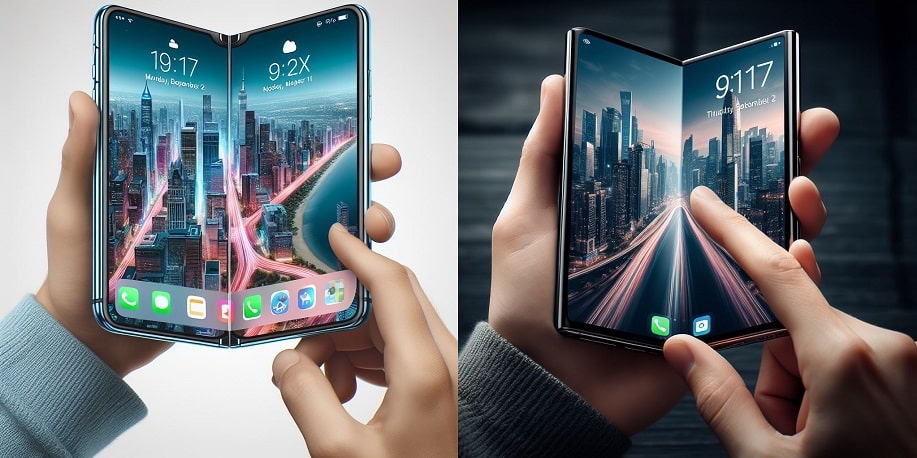Artificial intelligence (AI) has become a pivotal part of technological advancements in recent years, influencing a broad range of industries. From healthcare to finance and education, AI is transforming how we interact with technology. One of the most significant areas where AI is making waves is in the smartphone industry. With companies like Apple, Samsung, Google, and Huawei heavily investing in AI technologies, it’s clear that the next generation of smartphones will be smarter, more intuitive, and more personalized than ever before.
In this article, we will explore the role AI is already playing in smartphones and how it is expected to evolve in the coming years. From improved user experiences to more advanced functionalities, AI is poised to redefine the smartphone landscape. Here’s a look at how AI will shape the next generation of smartphones.
Table of Contents
Toggle1. Enhanced User Experience Through Personalization
One of the most significant ways AI will shape the next generation of smartphones is through enhanced personalization. AI has the ability to learn from users’ behaviors, preferences, and routines to tailor the smartphone experience to individual needs.
Adaptive User Interfaces
AI-powered smartphones will offer adaptive user interfaces that learn from a person’s habits and preferences. For example, your phone could change its settings based on the time of day, your location, or even your mood. If you always check your email at 9 AM, your phone might prioritize your inbox at that time. AI could also predict what apps you’ll need during certain times, such as opening music apps when you’re at the gym or bringing up your calendar before a meeting.
In the future, smartphones may also provide voice-activated customization. AI will learn to understand context and make decisions based on patterns. For example, if you’ve been listening to a certain playlist every morning while making breakfast, the phone could automatically start playing the same music when it detects that you’re awake.
AI-Based Virtual Assistants
Virtual assistants like Siri, Google Assistant, and Alexa are becoming more advanced thanks to AI algorithms. In the next generation of smartphones, virtual assistants will evolve from simple command-based systems to more proactive, context-aware assistants that can anticipate your needs. For instance, AI-powered assistants will be able to remind you of important events, suggest apps based on your usage history, or even manage your daily routine without needing to be prompted.
In addition, voice recognition technology will continue to improve, enabling these virtual assistants to become more accurate in understanding and responding to natural language queries. They will also become more integrated into the smartphone, allowing users to control not only apps but also devices like smart home systems and wearables seamlessly.
2. Revolutionary Camera Features Powered by AI
Smartphone cameras have become one of the most important aspects of the device for consumers, with advancements in AI playing a crucial role in the evolution of mobile photography. The next generation of smartphones will feature even more sophisticated AI camera systems that provide professional-level photo and video quality.
AI-Enhanced Image Processing
AI can already be found in smartphone cameras in the form of AI-assisted photo enhancements, like scene recognition and portrait mode. However, future AI algorithms will be able to process images in even more sophisticated ways. This will result in sharper images, better low-light performance, and more accurate color reproduction.
For example, AI could analyze a scene to adjust settings such as white balance, exposure, and contrast automatically, ensuring optimal results without the need for manual adjustments. AI could also recognize objects and people in a photo, optimizing the image for specific subjects. If you’re taking a picture of a sunset, the AI might boost the colors and contrast to make the photo more vibrant.
AI-Powered Video Editing
AI will also impact mobile video editing. With smartphones increasingly becoming a go-to tool for content creators, AI could streamline video editing by suggesting filters, transitions, and effects. For instance, AI could automatically create smooth cuts or suggest music that fits the mood of your video. It could also intelligently stabilize shaky footage, remove background noise, and even adjust the lighting in real time during video recording.
Moreover, AI will enable advanced video recognition, allowing your smartphone to categorize and tag video content based on subjects, locations, or even emotions, making it easier for users to search for specific content later on.
3. Advanced Security and Privacy Features
As smartphones become more integrated into daily life, security and privacy concerns grow. AI will play a significant role in enhancing smartphone security, offering smarter authentication and threat detection.
Facial and Biometric Recognition
Facial recognition has already been implemented in many smartphones, but AI will take this to the next level with more accurate and secure biometric recognition. Advanced facial recognition algorithms will ensure that only the phone’s owner can unlock the device, even in challenging lighting conditions or when the user’s face has changed over time (e.g., due to aging or weight changes).
In addition to face recognition, AI will be used to enhance other biometric systems, such as fingerprint and iris scanners, making them faster and more reliable. AI algorithms will also be able to detect fraudulent attempts to unlock the phone, improving security against theft and unauthorized access.
AI for Threat Detection
Another area where AI will significantly impact smartphone security is in the detection of potential threats such as malware, phishing attempts, and unauthorized access. AI-powered security systems will be able to scan apps, websites, and files for suspicious activity, blocking potential threats before they can do damage.
For example, AI could monitor unusual behavior in real-time, such as an app attempting to access sensitive data without permission, and immediately notify the user. It could also detect phishing emails or malicious links by analyzing patterns and warning users about potential risks.
4. AI and Battery Optimization
Battery life has long been one of the most common complaints about smartphones. While improvements have been made in battery technology, AI will play a major role in helping optimize battery usage, ensuring that smartphones last longer on a single charge.
Intelligent Power Management
AI will use machine learning to understand your charging habits and usage patterns. For example, if you typically use your phone for social media and gaming in the evening, AI could adjust the phone’s performance and power settings throughout the day to conserve energy for later. This will prevent excessive power drain during low-usage periods, extending battery life.
In addition, AI could intelligently control the CPU and other resources based on the task at hand, turning off unnecessary services or reducing power consumption during idle times. With more efficient power management, smartphones will be able to deliver longer battery life without sacrificing performance.
5. 5G Connectivity and AI Integration
5G networks are the next frontier in mobile technology, offering ultra-fast speeds and low latency. The integration of AI and 5G will unlock even more advanced smartphone functionalities.
With AI-powered cloud computing and real-time data processing, smartphones will be able to perform more advanced tasks, such as augmented reality (AR) experiences, real-time language translation, and instant video rendering. The ultra-fast data speeds provided by 5G will allow AI to process information faster and more efficiently, providing users with smoother, more responsive experiences.
Conclusion
As AI continues to evolve, its integration into smartphones will redefine what mobile devices are capable of. From personalized user experiences and enhanced camera features to better security and more efficient battery management, AI will make smartphones smarter, faster, and more intuitive.
In the coming years, we can expect smartphones to become even more integrated into our daily lives, with AI driving innovation in ways that were once unimaginable. The next generation of smartphones will not just be tools for communication and entertainment—they will be intelligent companions capable of anticipating our needs, improving productivity, and keeping us connected to the world in ways that are both exciting and transformative. The future of smartphones is undoubtedly shaped by AI, and it promises to be an incredibly exciting time for tech enthusiasts and casual users alike.
Related Posts
-
HP Unveils AI-Powered Experiences to Shape the Future of Work
In the rapidly evolving landscape of technology, artificial intelligence (AI) has emerged as a transformative…
-
Intel Core i3 3rd Generation
Intel's 3rd generation Core i3 processors, codenamed "Ivy Bridge," were released in 2012, marking a…
-
Galaxy Unpacked January 2025: The Next Big Leap in Mobile AI Experiences
Samsung’s Galaxy Unpacked events have become a global stage for the unveiling of its latest…
-
What Are the Tips for Using Smartphones Safely While Driving?
In today’s world, smartphones have become indispensable tools that help us navigate through life, whether…
-
HP announces mini PC and all-in-one desktop with Copilot Plus AI features
In a world driven by technology, the latest innovations in computing are transforming the way…
-
HP’s Role in Shaping the Future of Printing and Technology
Hewlett-Packard (HP) has become synonymous with printing technology over the past few decades. The company’s…






